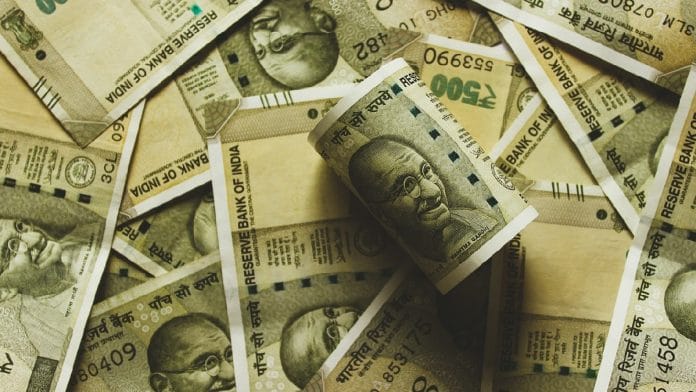
Thank you dear subscribers, we are overwhelmed with your response.
Your Turn is a unique section from ThePrint featuring points of view from its subscribers. If you are a subscriber, have a point of view, please send it to us. If not, do subscribe here: https://theprint.in/subscribe/
Everything in this world is relative. While serving in Ladakh, I was once home in Kerala on leave. One day in the evening as the family gathered out on the verandah enjoying the rain, my grandmother got up midway remarking “how cold it is, I am going inside” and left. The relativity aspect of everything in this world was never more explicit to me than then. The process of creation and distribution of wealth in a Nation are also relative to availability of natural resources, geography, people, policies and many more variables.
Nothing is absolute in this world. Albert Einstein’s theory of relativity transformed theoretical physics and astronomy during the 20th century, superseding Newton’s centuries old theory of mechanics. Einstein, by his theories challenges perceived proportionality of Euclidean geometry as derived from incomplete experience and thus being untrue. This, of course, does not make any sese on the face of it. This phenomenon of unequal distribution of wealth is as complex to assimilate as Einstein’s theory of relativity!
When we say India is a developing economy, it is in relation to better developed countries. Within the sub-continent, probably, India is a developed economy. As a corollary, developed economies like the US and Japan too have not afforded equal living standards for all in their respective countries. In all Nations the economies are constantly evolving and is said to be developed only in relation to less developed economies. Within developed Nations also unequal distribution of income among societies, is as profound as in developing and poor economies. While quality of the feelings is the same only the quantity of inequality varies!
Equitable distribution of income doesn’t mean that income is distributed equally; The theory of relativity is applicable here too. It just means that income is distributed in a fair way. There are many variables in this relation. Natural wealth, like minerals and hydrocarbons etc., available for distribution is not always the same in all geographies around the world. In such cases the quantity equal income depends on the ability of a Nation to create wealth; other variable are the geographical expanse of the country and the population of the Nation; These are some of the related aspects in income management; there are many more. These variables create rich and poor Nations.
In a Nation like India, with a population of over 1.4 billion, where there were no real wealth creators when the country got its independence, there is a need to first create wealth creators before we can work towards income equality. In the absence of rich natural resources in the country, the wealth generators are agriculture and industry. The process involves manufacture and distribution of produce which means creation of elaborate infrastructure. All this is possible only if the Nation can generate capital and has knowledgeable people with the appropriate varied skill sets thorough continued education. The interrelation of every aspect of our life in sustained creation and distribution of wealth is apparent. Yes, in the 1980s Information Technology and allied services took roots in the private sector and flourished in the subsequent decades giving a fillip to the economy. Opening of the economy in 1991 provided a catalyst to the process. Yet, today we find that the mainstay of any economy is agriculture and manufacturing. India needs wealth creators in the form of large and medium industries manufacturing quality products for domestic and external markets and in the process creating jobs for equality of income. Working for and fighting for economic progress in the face of opposition from inimical forces in the region and the world is not Hilterian Nationalism.
We can, thus, only build and sustain more equal societies when we confront the economic dynamics that generate wealth and inequality in the first place. Take the case of a Bollywood film. We need producers to finance the movie, directors to navigate the scenes, actors to play the roles and many others with various inputs to get the final product. In the process the actors are paid many times more than the spot boys and the producer rakes in a fortune if the film is a hit. It is obvious why the actors are paid so much more than the spot boys. The process of creation of wealth ensures its distribution albeit not in any defined proportion. Proportion of share of wealth are decided by many other factors. Skill, age, competence and many such other factors. For instance, companies that create wealth are willing to pay higher wages for their skills.
Tailpiece: The best that a Nation can afford its people is equal opportunities by creating equal societies providing equal opportunities for education, skill development, healthcare among other things. Even for near equal living standards for1.4 billion people may take decades to achieve, if at all.
These pieces are being published as they have been received – they have not been edited/fact-checked by ThePrint.


COMMENTS